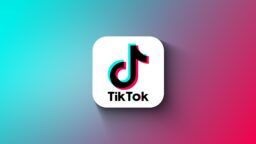Many music industry insiders largely agree on one point: In our current media and entertainment environment, music is undervalued.
We’ve heard that argument made by such people as Warner Music Group CEO Robert Kyncl, Sony Music Chairman Rob Stringer and many others.
Yet even as the music industry works to land better licensing deals and convince streaming platforms to charge more for subscriptions, it’s facing a new problem that threatens to suppress the value of music: A flood of AI-generated tracks that already number in the many tens of millions.
In fact, if the numbers claimed by AI music generator developers are correct, then we can already count at least 170 million AI-generated tracks in the world today – and that’s just the total from the handful of AI developers who have released numbers on the volume of music their tech has generated.
That number doesn’t even include the 10 million tracks per month that digital audio workstation (DAW) maker BandLab says its users are creating (since we don’t know how long this has been going on.)
Assuming each of those 170 million tracks were a three-minute musical work, it would take more than 970 years of constant listening for a person to hear them all.
In all likelihood, the amount of recorded music in the world has at least doubled in recent years thanks to this of AI content. One estimate from 2022 pegged the total number of musical tracks at around 80 million. A more recent estimate pegged the number at between 97 million and 230 million.
AI-made musical works are now contributing to a flood of new content being uploaded to streaming services. In fact, according to entertainment market research firm Luminate, an average of 120,000 new music audio files were uploaded to music streaming services every day during Q1 2023. That works out to more than 10 million new tracks uploaded in the first three months of 2023 alone.
Not all those tracks are AI-generated; some were recorded the old-fashioned way, and many were created using digital audio workstations (DAWs), which themselves have made music production much simpler and less expensive over the past few decades.
Nonetheless, AI music generators are a whole order of magnitude simpler than crafting music using DAWs, and streaming service execs say they are seeing AI music join this flood of content. (And yes, they do have the tools to know the difference).
And while at first glance these statistics may seem apocalyptically bad to music recording companies and publishers, the situation isn’t quite as dire as the numbers would suggest.
For one thing, much of that music isn’t backed by any sort of marketing or promotion, meaning few people are actually streaming them. (This is what streamer SoundCloud recently referred to as the “zero plays” problem.)
Still, this musical deluge does impact the music industry’s bottom line; the pro-rata system of royalty payments that most streaming services use means that these low-quality tracks – to whatever extent they’re being streamed by subscribers – decrease the payouts to other music rights holders. But they don’t amount to much competition for label-signed artists – at least not yet.
“There’s a lot of duplicated content, there’s a lot of content that is not even music… and at a certain point you get way too much content that is useless for the users.”
Jeronimo Folgueira, Deezer
That might change. If the forecasts are right, the business of AI-generated music is about to explode.
According to research released in April by Market.us, the generative AI music market was valued at USD $229 million in 2022, but will soar in value to $2.6 billion by 2032, a more than tenfold increase representing a compound annual growth rate (CAGR) of 28.6% over that time.
Think 170 million AI-generated tracks is a lot? You ain’t seen nothing yet.
Here is a by-no-means exhaustive list of AI generators, ranked by the number of tracks their developers say they’ve created so far.
A few things to keep in mind: For one thing, not all of these AI music generators allow their music to be uploaded to music streaming services. That’s the case, for instance, with Mubert, one of the most prolific AI music generators. Others, such as Boomy, do allow uploading to DSPs and even provide distribution services to make it happen.
Some other AI generators report the number of tracks in their libraries, which may include partial tracks or music snippets that subscribers can use to create their own tracks.
Finally, developers have differing ideas of what constitutes a “song” or “track.” In some cases, a 30-second sample might be counted as a “song;” in other cases, it may not. Additionally, there are plenty of generative AI music apps that haven’t disclosed how much material they’ve created.
Mubert – 100 million tracks
AI music creation platform Mubert announced earlier this month (July 12) that its AI has generated 100 million tracks – or roughly the equivalent of Spotify’s entire catalog.
Addressing a core concern of the music industry, Mubert stressed that the tracks were “generated exclusively using licensed music for input.”
The company says it has inked agreements with music creators who contributed some 2.5 million musical samples to Mubert’s database, on which its AI is trained.
Additionally, Mubert has a disclaimer on its website that prohibits its music from being uploaded to music streaming services. It is also “strictly prohibited” to register the platform’s music under Content ID systems.
Ecrett – 54 million ‘sounds’
The Soundraw-owned Ecrett AI music generation platform – which is meant to be used to create soundtracks for content such as podcasts and videos, and not for the creation of standalone music files – says on its website that it has accumulated a catalog of 54,004,104 “combinations of music created by AI” (presumably as of last count).
And 500,000 new “patterns of music” are generated on the platform every month, the platform claims.
Ecrett boasts that even users with no experience in creating music can craft tracks with its simple pick-and-choose menus – you select a “scene” (such as travel or fashion), a “mood” (happy, sad, chill, etc.) and a musical genre.
Boomy – 16.5 million ‘original songs’
The website of popular AI music creation app Boomy states, as of publication time, that creators on its platform have generated 17,210,261 tracks since Boomy launched in 2019. Based on MBW’s observations, that number is currently rising by around 1 million per month.
On top of a full suite of music creation bells and whistles, Boomy offers distribution services as well, through Downtown-owned DashGo. However, one of the problems with AI-generated music caught Boomy unawares in May, when DashGo halted uploads of Boomy-generated tracks to Spotify, after Spotify had flagged “stream manipulation” of some tracks coming from the Boomy platform.
To be clear, neither Spotify nor DashGo accused Boomy itself of racking up artificial streams on Spotify (i.e., using bots or other methods to falsely inflate a track’s stream count), and Boomy tracks were eventually cleared for upload to Spotify once again.
Yet the incident did highlight one particularly ugly aspect of AI-generated music: It makes it much easier for con artists to create content they can game on streaming services, thus depriving actual artists and rights holders of some of their legitimately-earned income.
Loudly – 150,000 ‘sounds,’ potential for 1 billion tracks
This AI app describes itself as “Roblox for music creation,” because of its ability to generate tracks that are interoperable with broader music-related ecosystems. The app comes with an API that allows creators to integrate their musical creations into their own websites or programs.
The app claims to have 150,000 “sounds” in its music catalog, with the potential to build around 1 billion musical combinations out of them.
“Our AI Music Engine is able to harness this catalog and generate new compositions on demand, therefore we are able to accelerate the growth of our catalog in an unprecedented manner,” the company says.
Evoke Music – 60,000 songs and sound effects
Unlike most other AI music services, Evoke Music doesn’t enable users to order up AI-generated music made on the spot. Rather, it features a library of 60,000 AI-generated tracks and sound effects that users can embed in their videos or social media posts.
Amadeus Code – 44,000 ‘music compositions and sound effects’
Amadeus Code offers an iOS-based text-to-music generator that allows users to type in keywords, resulting in the algorithm creating a new music composition.
The company’s new API, MusicTGA-HR, allows users to connect their Amadeus-created musical works to external applications, and the platform features 44,000 sound recordings that were created by AI and then reportedly refined by humans. The music data set is expected to grow by several hundred songs per month going forward.Music Business Worldwide





